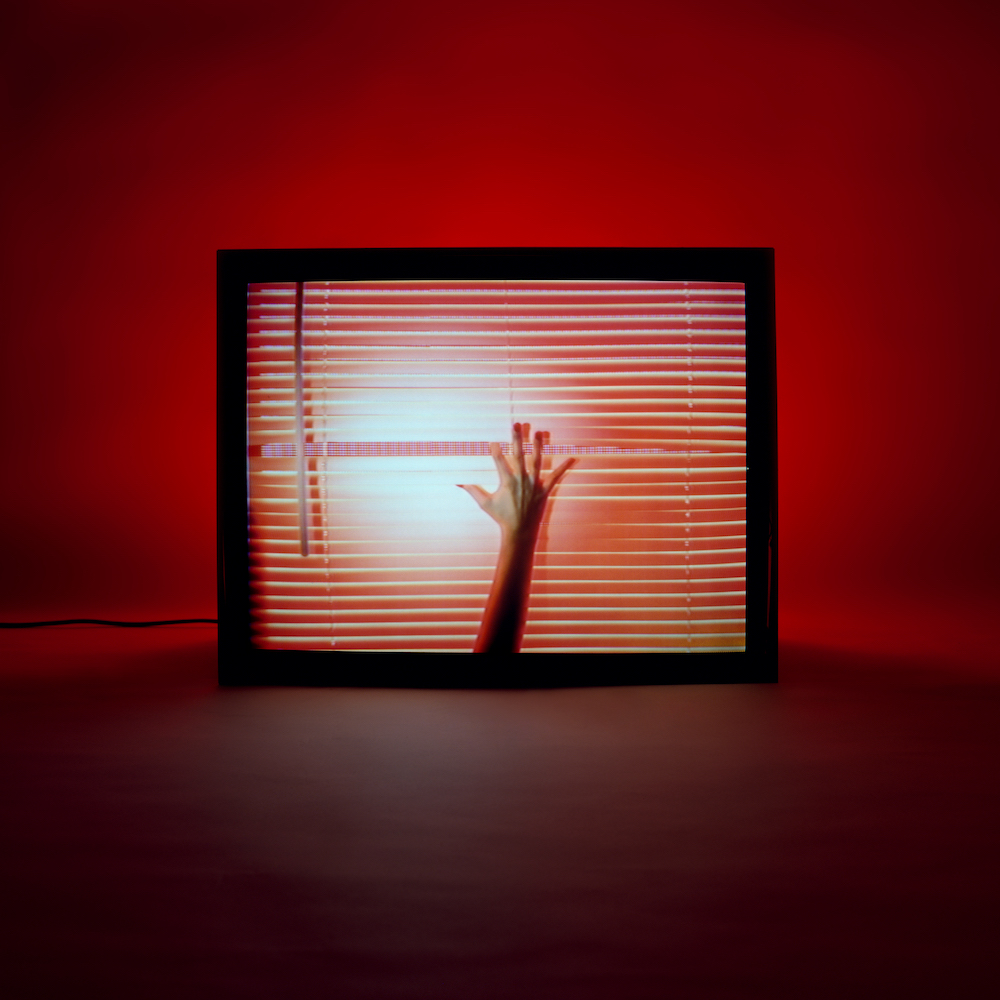Capitalizing on the success brought by their first two albums, one of Scotland’s most prized possessions, Chvrches, had a brief and puzzling fling with the mainstream for their third full-length effort, 2018’s Love Is Dead. By entrusting their talents to a big-name producer like Greg Kurstin, who had previously produced records for late-career Beck, Sia, Kelly Clarkson, and Pink — yikes — Love Is Dead was received with critical unease and negativity, only for it to be followed up by an unthinkable collab with the infamous Marshmello to make matters more offensive. Love Is Dead, swamped in its own hideously maximal tenor and shallow sentiments of apathy, was a depressing turn for the incredibly talented trio of Lauren Mayberry, Iain Cook, and Martin Doherty. At best, their third release provided them an opportunity to start from square one and revert to the earnest and heartfelt epics that defined their early career.
Revisiting the blueprint that once worked appeared to be the most logical next step for Chvrches. But now that this has transpired in the form of their newest album, Screen Violence, what many thought would be the best move for the trio yields surprisingly disappointing results. Despite the clamor from all fronts — critics and fans alike — for Chvrches to rekindle an old flame that helped define the cinematic sound of indie music a decade ago, Screen Violence proves that retreading familiar ground is not always the best move, no matter how refreshing and thrilling we remember the past to have been.
As if it’s 2013 all over again, unashamedly stadium-sized choruses, stringed crescendos, simple but punchy drums, and of course, emotional highs plaster the majority of Screen Violence. This combination makes for a pleasant sensation – if you’re looking for a passing feeling of nostalgia. Unless you’re a hardcore stan of Chvrches, it’ll soon become clear how gratingly obsolete this loud and highly compressed synth-pop sound has become over the past couple of years.
Though popularized by bands like Imagine Dragons, The Naked & Famous, then perfected by Chvrches in the 2010s, vivid presentations of synth music just won’t cut it in this new decade — an era where raw, rough, and quaint has found strong footing within the radio-friendly realm of indie music. The tried and true formula – comprised mainly of sweet synth melodies, simple drum programming, and occasional swells of reverbed guitars – is now of yesteryear.
As has been the case with all of Chvrches’ music, there’s an obnoxiously assertive new age sheen that envelopes the retro synth-pop earworms crawling throughout Screen Violence. Even tracks featuring heavier organic instrumentation, like “Lullabies” and album closer “Better If You Don’t”, flaunt this glossy coat, making it seem Chvrches are still trying to remain relevant and appealing to the mainstream, even after struggling to do exactly that with their last record.
Within their attempts to recapture the maximalist, retro aesthetic that made Chvrches so beloved when they initially exploded, the life force that would typically coarse through the outfit’s sound can only be faintly detected this time around. As renowned a lyricist Lauren Mayberry has proven to be, her abilities as a vocalist, especially within this sterile style of music, are vibrant, powerful, and pulse with urgency. You believe every word she unleashes, even when the sentiments expressed come across as fatal to a flawed degree (i.e. the entirety of Love Is Dead). Regardless of what she sings into existence, the force from which she does is admirable. But on this new record? Not so much.
There’s something not quite right with the way Mayberry’s voice is mixed throughout Screen Violence, and unfortunately this issue shows itself across all 43 minutes of the record. Whether it be on overcrowded opening track “Asking for a Friend”, the stagnant jangle-pop of “Final Girl”, or the rather lifeless goth rock of “How Not To Drown”, Mayberry sounds as if she is indeed drowning – or calling out from a place afar. Maybe even phoning in from another location? This effect could be intentional, given the project’s themes of isolation and disconnection, onset by the pandemic. But even if this was the well-intentioned effect, it falls flat; her vocal radiance is barely felt.
Don’t get it twisted; it’s heartwarming to again hear Chvrches’ surging cinematic peaks and ethereal bubble envelope songs like “Violent Delights” and the contrasting darkness of “Nightmare”, but their cathartic aim is diminished if listeners can’t hear Lauren sing her heart out. For this reason, their quintessentially soaring choruses have become unconvincing and overall, murkier and less distinct.
Chvrches’ polished 80s-indebted sound, specifically as displayed on Screen Violence, will continue to enthral, albeit in momentary rushes. And with the undeniable humanity at the trio’s core, their music still holds merit. But it might be time to face a harsh reality, that time has surpassed the need for bands that sound like Chvrches. The contentious space previously occupied by these once indie darlings is now filled by bedroom pop charmers and minimalist, lo-fi-leaning producers who thrive within the intimate and quaint, something Chvrches may want to consider to remain viable. In an age where listeners run through a new favorite artist, sound, and style, faster than any generation, Screen Violence will struggle to hold listeners’ attention, no matter how in-your-face they’ve returned with their formula. It’s a considerable improvement over the absolute mess that was Love is Dead, at the very least, but they’ve taken a step a bit too far into their past to bounce back fully.

